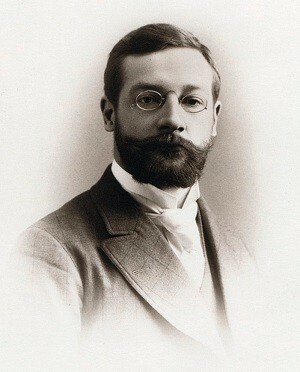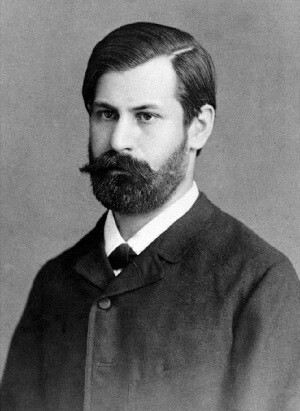The 7 main currents of Psychology
Psychology is a young science, but despite his short life trajectory, he has given time to create several psychological currents that establish the way in which it is investigated, the concepts and methods that are used to work, and the objective that is pursued.
In fact, the variety of theoretical and practical proposals about the direction that psychology can take has been surprisingly large, which does not mean that they cannot be summarized.
Next we will see what are those main currents of psychology and what are or have been its characteristics.
The most relevant currents of Psychology
Psychology as a separate discipline from philosophy appeared during the second half of the 19th century. It is normally considered that his birth coincided with the inauguration of the psychology research laboratory created by Wilhelm Wundt in 1879.
From that moment on, different approaches to psychology began to emerge, many of which appeared as a reaction to the rest. They are as follows.
1. Structuralism

This current that appeared around 1890 includes members of the tradition of psychological research inaugurated by Wilhelm Wundt. Edward Titchener was its main representative, and defended the idea that the objective of psychology should be to discover the basic elements of consciousness and the way in which they interact with each other to create mental processes.
Is about a reductionist perspective, since it tried to investigate from the most basic elements to understand the most complex ones, and mechanistic, since it was based on the idea that a system as complex as the one that makes up our mind can be reduced to isolated parts, as if it were a motor.
Precisely because of its more academic than pragmatic approach, another current soon appeared that began to compete with it: functionalism.
2. Functionalism
One of the main currents of psychology that appeared at the beginning of the 20th century. Functionalism, which was born in the first decade of the 20th century, supposes a rejection of the structuralist approach; Instead of focusing on studying the components of the mind, he aimed to understand mental processes. He did not focus on the "parts", but on the functioning, that is, the psychological functions that take place inside our head (and, by extension, inside our body).
Furthermore, while structuralism's approaches had to do with very abstract and general questions, functionalism aspired to offer useful tools. The idea was to know how we work to be able to use that knowledge in daily and specific problems.
Although he himself disassociated himself from functionalism, it is considered that William James He was one of the great historical figures in the development of psychology who best embodied the approaches and concerns of this current.
3. Psychoanalysis and psychodynamics

The psychodynamic current first appeared through the work of Sigmund Freud, in the last years of the XIX century. He was based on the idea that human behavior, both in its movements, thoughts and emotions, is the product of a struggle of opposing forces that try to impose themselves on the other. This fight is unconscious, but according to the followers of this current it can be recognized through the interpretation of its symbolic manifestations.
Although the work of Sigmund Freud has led to the creation of many different psychological theories and schools of therapy, the truth is that currently do not have scientific endorsement, among other things because of the criticism that the philosopher of science Karl Popper made about this way of investigating.
- Related article: "The id, the ego and the superego, according to Sigmund Freud"
4. Behaviorism
Behaviorism was consolidated shortly after psychoanalysis, and it appeared as a mainstream of psychology who opposed Freud and his followers, but also many other researchers with a tendency toward the mentalism. Unlike the latter, behaviorists emphasized the importance of basing research on observable elements behavior, avoiding unjustified speculation as much as possible and avoiding the interpretation of acts in a symbolic key.
Fundamentally, behaviorists were characterized by considering that the object of study of psychology should be behavior, and not what is usually understood by "mental processes" or, by Of course, any type of speculation about the soul (although at a certain point, mental processes were also studied, although understood as behavior, just like behavior motorboat).
But although the behaviorists wanted to base their work on the study of matter and not the soul, that does not mean that they dedicated themselves to studying the brain, as a neurologist would.
Unlike biopsychologists, behaviorists do their job they did not need to know details about what happens in our nervous system when performing certain tasks. Instead, they focused on studying the relationships that are created between stimuli and responses. For example, to know if a reward system works or not in a company, it is not necessary to know which neuron circuits are intervening in this process.
In this way, in this current of psychology the unit of analysis is contingency: the relationship between stimuli and their responses (being both observable and measurable). However, since measuring certain reactions to stimuli was considered immoral using human beings, they were based on experimentation with animals, which gave great strength to the comparative psychology.
Two of the most famous representatives of this current of psychology were John B. Watson Y B. F. Skinner.
- Related article: "Behaviorism: history, concepts and main authors"
5. Gestalt

This current, which should not be confused with the Gestalt therapy, was born in Germany to study psychological processes related to perception and with the way in which solutions to new problems are reached.
For these researchers, both by seeing an image and having an idea we are able to create a global image about the environment and its potentialities, instead of limiting ourselves to accumulating information piece by piece about what surrounds us and then making these elements fit.
For example, when solving a puzzle or we are trying until by chance we get it, but an image of the resolution of the problem appears spontaneously. Wolfgang Köhler, for example, studied how chimpanzees come to conclusions about possible ways to modify the environment to obtain food.
This group of researchers developed a series of norms, the so-called "Gestalt laws", through which they described the processes by which our brain creates qualitatively different units of information from the data that reaches it through the senses.
6. Humanism
Technically, humanistic psychology is not characterized by proposing specific research or intervention tools, nor is it based on differentiated scientific presuppositions. What distinguishes it is the way in which psychology is linked with ethics and with a concept of the human being.
In this current it is believed that the function of psychology should not be simply to obtain information and analyze it coldly, but rather to you have to make people happy.
In practice, this has meant that humanistic psychologists have relied heavily on phenomenology and have considered that the subjective and the not directly measurable should also have value for psychotherapy and investigation. This has earned them much criticism, since it can be understood as a symptom that their orientation is dualist.
One of the best known representatives of this current was Abraham Maslow, who theorized about the hierarchy of human needs.
- You may be interested in: Humanistic Psychology: history, theory and basic principles
7. Cognitivism
Cognitivism was consolidated as a current of psychology in the late 1960s, and was a reaction to the behaviorism of B. F. Skinner. It was a return to the study of mental processes that were not taken into account by the behaviorists, and this brought about a new preoccupation with beliefs, emotions, decisions, etc.
However, methodologically this new trend was greatly influenced by behaviorism, and used many of his intervention and research tools. Currently, cognitivism is the dominant perspective.
